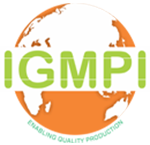Post Graduate Diploma/ Executive Diploma in Ayurvedic Food And Nutrition

Post Graduate Diploma/ Executive Diploma in Ayurvedic Food and Nutrition offers knowledge and skill upgradation among students/healthcare professionals as dietitians/doctors. IGMPI is offering an opportunity to become a Ayurvedic Nutritionist for those who understand that people are more conscious and concerned about their health, so they look for the Ayurvedic Nutritionist or Personal Nutritionist who has Diploma to reassure that they are trained and qualified in the Ayurvedic Nutrition field. This professional typically works in: ayurvedic health centers, clinics, and ayurvedic academies. An Ayurvedic Nutrition Specialist helps clients (i.e., Ayurvedic patients) to develop their fitness routine and body building.
The objective of this programme is to recognize nutrition and health in adopting that right amount of nutrients to be provide in individual life, Ayurvedic Food and Nutrition
is an emerging field of healthcare and Ayurveda industry. It is a whole new area that understands the need of good food habits and imparts guidance to develop a healthy world. These professionals would design dietary
treatments not only for diseased individuals but also work on some health drives for those who love to lead a hale and hearty lifestyle. On completion of this programmes, students will be able to explain how to improve
nutrition and health status of a person, learning about the dietary guidelines, diet plans, its nutritive value and effects on the body, purely in Ayurvedic way.
The programme has been designed for professionals and students aspiring to work in the field of Ayurvedic nutrition as dietitians, nutritionists, research work in projects.
Programme Structure
Module 1: Introduction to Human Biology and Body Functions
Module 2: Nutrients (Role and Significance)
Module 3: Understanding Nutrition (Basic diets for normal conditions/RDA)
Module 4: Advanced Nutrition
Module 5: Introduction to Clinical Nutrition
Module 6: Introduction to Ayurveda Science and its Principles
Module 7: Role of Prakriti and Ayurvedic Lifestyle
Module 8: Concept of Agni and Ama (Intermediate Metabolites) in Ayurveda
Module 9: Understanding Concept of Ayurvedic and Modern Ahar
Module 10: Ayurveda Ahar Guidelines and Seasonal Diet
Module 11: Managing Lifestyle Disorders through Ahar
Module 12: Concept of Immunity in Ayurveda and its Relation with Ahar
Module 13: Management of Disease through Ayurvedic Ahar
Module 14: Samskars in Cooking & Utensils Used in Ayurvedic Cooking
Module 15: Impact of Junk Food and its Healthy Alternatives in Ayurveda
Module 16: Kitchen Spices and their Therapeutic Uses
Module 17: Myths in Society and Facts in Ayurveda and Dietary Substances
Module 18: Practitioner Case Studies
Eligibility
Any Graduate/ B.tech/ B.Sc. in Microbiology/ Life Sciences/ Botany/ Zoology/ Food Science/ Food Technology/ BE/ B.Pharma/ MBBS/ BDS/ BHMS/ BUMS/ BAMS or any other discipline. Diploma holders are eligible for our Executive Diploma, Industry Certificate, and Certificate Programmes.
Programme Duration
The duration to complete this programme is 1 year (Post Graduate Diploma), 6 months (Executive Diploma) .
Registration
The registration dates for this programme run by the Institute are updated timely on the webpage. Effective online learning tools incorporated into the design of the webpage make the programme lectures, online live classes and study material easily accessible. This gives a huge window of self-regulated and self-paced performance to the participants.
Programme Deliverables
A comprehensive study material for all the modules in hard copies ensuring the needs of the audience. The accompanying training material is appropriately aligned with the current Industry’s expectations.
- - Assignments for all the programme modules for continuous evaluation and guidance
- - Interactive or online live sessions on all key areas of the programme giving all flexibility to the participants
- - Online classes for all the modules will be conducted on the weekends. Moreover, a doubt clearing session will also be scheduled before the examination
- - All the efforts are made by IGMPI faculty members to make the entire programme modules easily understandable
- - Assessment and evaluation for all the programme modules in order to enhance the levels of competencies and skills of the participants leading towards the objective of application in the job
- - At the end of each programme modules, the trainers shall obtain feedback from the participants using specially designed questionnaires
- - All learning and training delivery initiatives shall be conducted in English
Examination & Certification
IGMPI follows a credit system based on all-learning activities involved in studying for all PG Diploma, Executive Diploma Programmes. Each of your modules is equal to 4 credits. To successfully complete the programme, you will have to earn all the credits assigned to your programme.
All the participants are obliged to timely submit completed assessment assignments (during the programme, usually after every module) and appear for an online exam at the end of the programme. After successful completion, the participants will be awarded Post Graduate Diploma/ Executive Diploma in Ayurvedic Food and Nutrition by Centre for Nutrition and Dietetics Studies, IGMPI. For all the above-mentioned modules elaborate programme material, self-assessment assignments and project work details would be provided by the Institute from time to time. Details get updated on the webpage as well.
Placement Assistance & Corporate Relations
The Institute has partnered with many organizations for providing with placement assistance to in its participants. The robust placement cell comprises of senior level Human Resources professionals and Talent Acquisition experts which maintains close links with business and industry. We are engaged in promoting the employability of our participants by maintaining good rapport and relation with HR cell and recruiting managers of leading Food and Agriculture companies across the globe. The efforts of our placement cell also include helping with professional resume writing, interview skills & conducting mock interviews etc.
In recent Months the Institute has witnessed more and more participation from professionals working global healthcare and nutrition giants like Herbalife International India Pvt. Ltd., Aayush Food and Herbs Limited, Herboveda India,Patanjali Ayurved, Hindustan Unilever Ltd, Emami, Himalaya, Vaddmaan Innovation LLP – Natural Nutrition Company, Ayurinveda Remedies Pvt. Ltd., Namhya Foods Pvt. Ltd., Syastha Foods & Nutrition Pvt. Ltd., Lifespan Pvt. Ltd., Pristine Organics Pvt. Ltd., Pure Natural Products Pvt. Ltd., Perfect Ayurveda, Herbs Nutriproducts Pvt. Ltd., etc.
Future career prospects
Centre for Nutrition and Dietetics Studies (CNDS), IGMPI’s online programme is a professional programme targeted to cater the health industry needs trained health professionals. The information, guidance, practical training and off programme completion certificate will provide the participant with not one but many opportunities in the industry. This would come true in the form of job roles and positions like that of Ayurvedic Nutritionist, Ayurvedic Nutrition Counselor for Health and Ayurveda related Academy, Ayurvedic dietitian, Ayurvedic Diet Consultant among Non-Governmental Organizations, Health and Ayurvedic Nutritionist in community ayurvedic nutrition related programmes run under government organizations, consultant for different ayurvedic academies, private Ayurvedic healthcare centers, hospitals, academia and many more.
How to apply | View all IGMPI CNDS programmes
For further enquiries, write to or call us on:info@igmpi.ac.in / 18001031071 (Toll Free), Phone: +91 11 26512850
Food | Nutrition & Dietetics | Pharmaceuticals | Clinical Research | Healthcare | Medical Coding | Medical Device | Nanotechnology | IPR
Placement testimonials: Our alumni are working with Fortune 500 and global Pharmaceutical, Food, Nutrition and Dietetics and healthcare giants like
